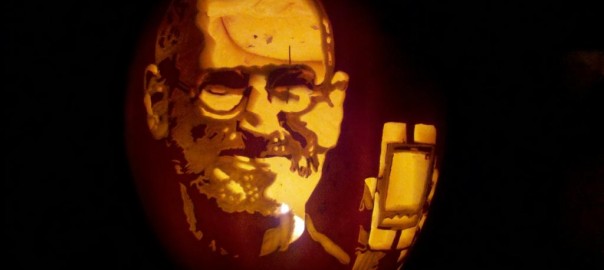
This article was co-written shortly after Steve Jobs died in 2013.
Steve Jobs was a durable human. His natural curiosity led him to explore new ideas, his brilliance allowed him to capitalize on what he learned, and his creativity drove him forward.
Jobs applied his experience to the design of what he called “seamless” products: devices so intuitive that using them is second nature. Yet he himself grew up in a world without such gadgets.
Jobs’ path to innovation was not built on a digital platform. He spent his time as a youth cultivating his own inborn natural resources. Early on, he built models, took electronics classes, tinkered in garages with other kids where they experimented, failed, and tried again. By taking a calligraphy course after he dropped out of college, he grew to appreciate the sweeping curves of letters and the power of an elegant typeface. A decade later, he applied his design thinking to breathtaking effect on the first Macintosh. For the rest of his life, Jobs embraced the liberal arts – hiring poets, scientists, musicians, and writers to help him create vehicles for customers’ creative expression.
For children, digital devices make learning fun and stimulate their imagination. Kids can glean much from watching a demonstration in a YouTube video, including how a motherboard is built. But that kind of learning is in constrast to how Jobs did it: with his hands, not only his head. We believe that children cannot fully express their inborn interests and capabilities within the confines of a screen. We fear that children who are never bored will not be compelled to invent new ways to amuse themselves (or, ultimately, to innovate), as Jobs and others his age did when they were young.
A number of educators, especially at the secondary and undergraduate level, note a certain cognitive laziness stealing over our students. We’re witnessing a growing number who are less tolerant of puzzling things out, working with abstraction, or countering challenges to their own thinking. They can lack patience to strategize and can be reluctant to hazard an off-the-cuff answer with Google always close by. Many submit written work that conforms to the letter, but lacks insight or risk-taking.
Is this proof of the well-documented shortcomings of our national educational system? Perhaps in part. The data on laptops and tablets in the classroom are also both exciting but mixed, with many professors and students themselves admitting the devices can facilitate more distraction than real learning in the classroom. In light of this information, we fear the ultimate irony is that the devices Jobs and others have designed to complement our unique human potential could actually serve to erode it.
In his graduation address at Stanford, Jobs admonished students to “Stay hungry. Stay foolish.” Jobs himself said that his greatest successes only became possible because he failed on an epic scale when he lost the very company he had founded. We must then guard against the possibility that enabling children to seek answers too quickly from technology could quench their natural thirst for understanding and prevent them from using their own minds, to be foolish, or even to fail.
As we mourn Jobs’ death, we can rest assured his enormous achievements will live on. But even as we exist comfortably in the grasp of his brilliance, let’s be mindful to use technology in ways that enhance our humanity, not supplant it.
About the author:
Jenifer Joy Madden is a health journalist and adjunct professor of digital and broadcast journalism at the Newhouse School of Public Communications of Syracuse University. Her words have informed millions on news outlets including ABC News, The Washington Post, and in her books, How To Be a Durable Human: Revive and Thrive in the Digital Age Through the Power of Self-Design and The Durable Human Manifesto: Practical Wisdom for Living and Parenting in the Digital World.
Download The Durable Human Manifesto for free here.



